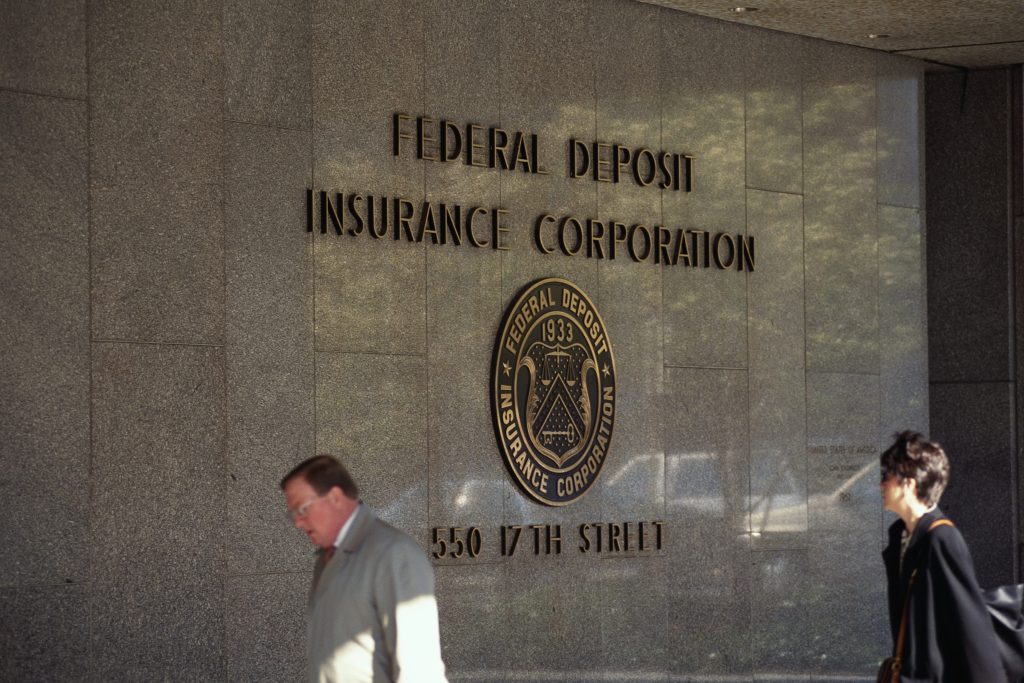Federal Deposit Insurance Corporation (FDIC) Chair Martin Gruenberg pledged Monday to resign once a successor is confirmed “in light of recent events,” according to a statement posted on the regulator’s website.
“Until that time, I will continue to fulfill my responsibilities as Chairman of the FDIC, including the transformation of the FDIC’s workplace culture,” Gruenberg said in Monday’s statement.
Gruenberg came under fire in November after a WSJ article detailed a toxic culture at the FDIC that included rampant sexual harassment, discrimination and bullying. The regulator hired the law firm Cleary Gottlieb to review the work environment, and its review, based on the testimony of over 500 current and former FDIC employees revealed the array of bad behaviors This led to calls for Gruenberg’s removal from lawmakers, industry insiders, FDIC employees, and the general public.
What likely prompted the resignation announcement from Gruenberg? Senator Sherrod Brown (D-OH), Chair of the Senate Banking Committee, reversed his stance on Gruenberg on Monday, just a few hours before the resignation offer.
“After chairing last week’s hearing, reviewing the independent report, and receiving further outreach from FDIC employees to the Banking and Housing Committee, I am left with one conclusion: there must be fundamental changes at the FDIC,” Brown said. “Those changes begin with new leadership, who must fix the agency’s toxic culture and put the women and men who work there – and their mission – first.”
Brown urged President Joe Biden to “immediately” nominate a new chair “and for the Senate to act on that nomination without delay.”
Gruenberg served in various leadership roles as Chairman, Vice Chairman, and a Director of the FDIC ever since August of 2005.
T+1 scheme
On May 28, a new settlement cycle known as T+1 kicks in, as the SEC and the Depository Trust & Clearing Corporation (DTCC) move the industry to the new standard.
Currently, market players are required to deposit stock physically in an account within two days of making a transaction in a process called T+2. During that time, brokers have to post collateral to the DTCC because equity prices can fluctuate over those 48 hours and some buyers and sellers use margin or borrowed shares, so the lag helps to ensure everything turns out right.
The standard – which started at T+5 – has been creeping downward with improvements in technology, emerging new products and increasing trading volumes. But not without some dispute as to the shorter timeframe’s benefits.
Ether ETF not a given
The SEC has until May 23 to announce its decision on VanEck’s spot Ether ETF application, and the crypto industry is bracing for non-approval. A rejection could lead to lawsuits, but hey, Grayscale Investments’ lawsuit last August paved the way for the spot bitcoin ETF approval, so maybe that’s just the trajectory we’ll see again.
FINRA’s Remote Inspections Pilot Program
Last year, the Financial Industry Regulatory Authority (FINRA) approved two key proposals – the Remote Inspection Pilot Program and the Residential Supervisory Location Program.
The Remote Inspections Program is a voluntary, three-year pilot that allows eligible firms to elect to fulfill the branch office inspection requirements of FINRA Rule 3110 by conducting inspections of eligible branch offices, Offices of Supervisory Jurisdiction and non-branch locations remotely without an on-site visit under certain conditions. This program starts soon on July 1, 2024, and it ends on June 30, 2027.
The Residential Supervisory Location Proposal is designed to align regulatory practices with evolving workplace models, treating private residences where supervisory activities are conducted as non-branch locations if they meet certain conditions.
Disclosure on pay-related proposals
In late 2022, the SEC adopted rule changes that will require those institutional investment managers who file Form 13F to annually file a Form N-PX disclosing the manner in which they have voted on certain pay-related proposals held by the companies whose securities they hold.
The new requirements go into effect on July 1, 2024, and Form 13F filers will be required to file their first reports on Form N-PX by August 31, 2024. The first report will cover all pay-related proposals presented at any stockholder meeting held between July 1, 2023, and June 30, 2024.

















